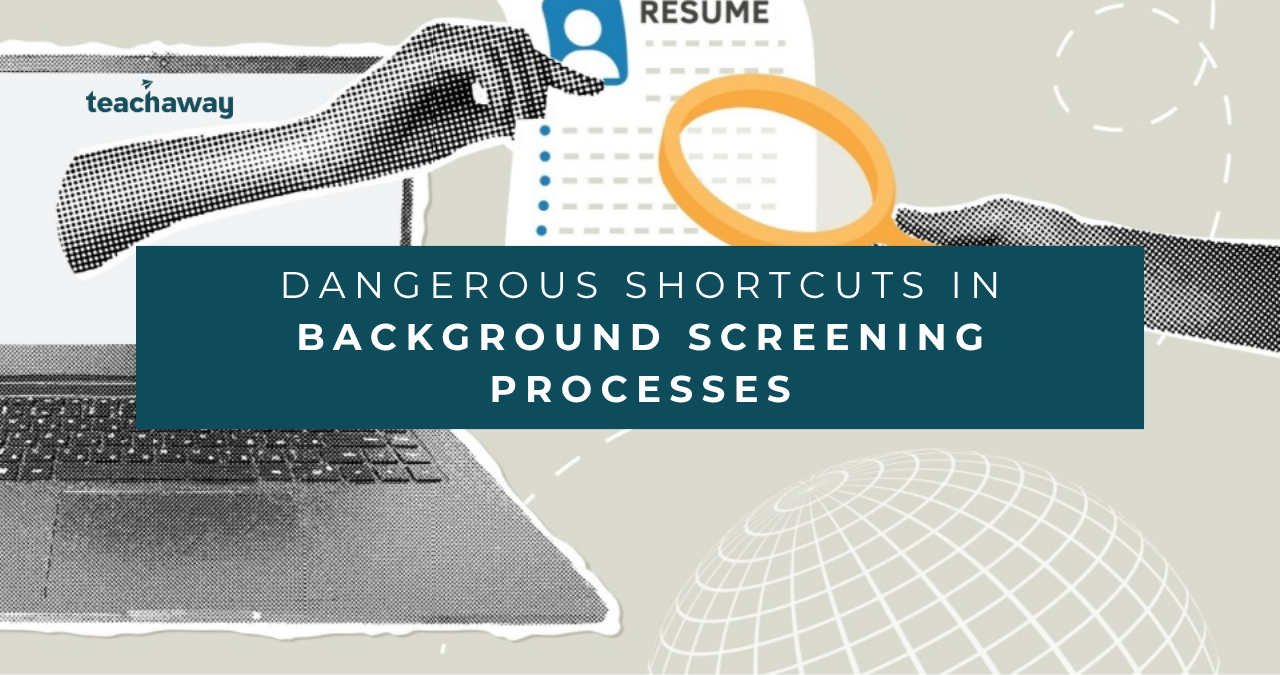Hiring teachers quickly can be tempting, especially during high demand recruitment seasons. But cutting corners in background screening does more than risk compliance issues. It can compromise student safety, harm your school’s reputation, and lead to costly rehiring processes.
Many school leaders assume that small shortcuts, such as skipping reference verification or relying only on a criminal record check, will not make a big difference. In today’s competitive and highly mobile education workforce, these shortcuts can create serious problems that could have been prevented.
Below are the most common shortcuts in teacher background checks, why they are risky, and how to avoid them.
Relying Only on a Single Criminal Record Check
One time criminal checks often give a false sense of security. These checks represent a snapshot in time and may not include offences committed in other regions or countries where a teacher has worked.
Best practice: Use multi jurisdictional background checks, verify records against both local and international databases, and re run checks periodically, especially for long term hires. Teach Away works with trusted global partners, such as Avvanz, to make this process faster and more reliable, ensuring checks cover every region where a candidate has lived or worked.
Skipping Reference Verification
Some schools request reference contact information but never follow up. This is often due to time pressures or assumptions that a written letter is enough.
Best practice: Speak directly with at least two professional references, ask behaviour based questions about conflict resolution, classroom management, and collaboration, and watch for hesitation or vague answers. Through Teach Away, references can be verified before the candidate reaches your desk so you begin with a stronger shortlist.
Accepting Outdated or Self Reported Credentials
It is not uncommon for schools to accept scanned copies of degrees, teaching licenses, or certifications without confirming their validity.
Best practice: Contact licensing bodies and universities directly, confirm issue and expiry dates on all qualifications, and maintain an internal credential tracking system. Teach Away’s systems can track credential validity over time and flag expired or revoked documents so nothing slips through unnoticed.
Ignoring Ongoing Monitoring
Many schools complete thorough screening before hire but do not implement ongoing monitoring once the teacher is in the classroom.
Best practice: Schedule annual or biannual background checks, provide confidential reporting channels for staff and parents, and ensure clear processes for investigating concerns.
Additional Safeguards Schools Often Overlook
Beyond the obvious background check steps, there are safeguards that can make hiring safer and more efficient:
- Pre-vetting before interviews so your shortlist only includes candidates who meet minimum qualifications and eligibility, a standard step for Teach Away’s teacher database.
- Automated document collection to avoid delays caused by missing paperwork, built into Teach Away’s recruitment portal.
- Curriculum and experience matching to quickly find candidates with IB, SEN, or AP teaching experience, available as advanced filters in Teach Away’s database search.
The Takeaway
By avoiding dangerous shortcuts and building in these overlooked safeguards, your school can protect both its students and its credibility.
